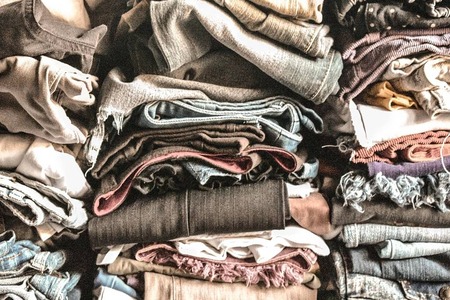

Donated Clothing
Greenpeace, the environmental organization, has discovered that a substantial portion of donated clothing doesn’t find a second life. In an effort to illustrate this, they placed geolocation devices in 29 pieces of clothing found in municipal containers, Zara, and Mango retailers. Most of these items have traveled extensive distances, with the majority of their whereabouts now unknown.
After monitoring the donated clothing for four months, Greenpeace confirmed the reuse of only one item, purchased from a second-hand retailer in Romania. This action coincides with Black Friday, a period of mass purchasing driven by deep discounts, highlighting the issue of overproduction in the clothing and footwear industry.
Many of the monitored items are still on their journey, having traveled to destinations such as Chile, Pakistan, India, or Togo. Some remain in warehouses on Spanish industrial estates, while others are untraceable. The geolocation sensors were embedded in reusable clothing and footwear in July and August, placed in containers across 11 Spanish provinces, including Zara and Mango stores.
Greenpeace’s investigations revealed that both Zara and Mango are managed by the same entities. Clothing from both brands was found in the United Arab Emirates, a country with international textile reception centers in free zones, allowing for re-exportation. Additionally, traced clothing reached African countries such as Egypt, Togo, and Morocco.
According to Greenpeace, 46% of worn textiles exported from the EU end up in African countries, with 60% resold and 40% dumped, often directly into the environment, as per the European Environment Agency.
FyterTech Nonwovens has announced major upgrades to its Spilfyter® product line with the launch of 20 new products across five…
BASF has launched its first commercial facility in Shanghai, China, dedicated to recycling textile waste into raw materials for making…
Under Armour, Inc. and UNLESS, Inc. are set to introduce a groundbreaking regenerative sportswear collection during Milan Design Week.
Hyosung will exhibit its tailored stretch denim solutions at Kingpins, featuring innovative developments using the company’s Creora and Regen spandex…
The Lycra Company has teamed up with Diamond Denim, a fully integrated textile mill under the Sapphire Group to present…
Trivantage, a leading provider of fabrics, hardware, and accessories, has launched two new additions to the Batyline sling fabric range…